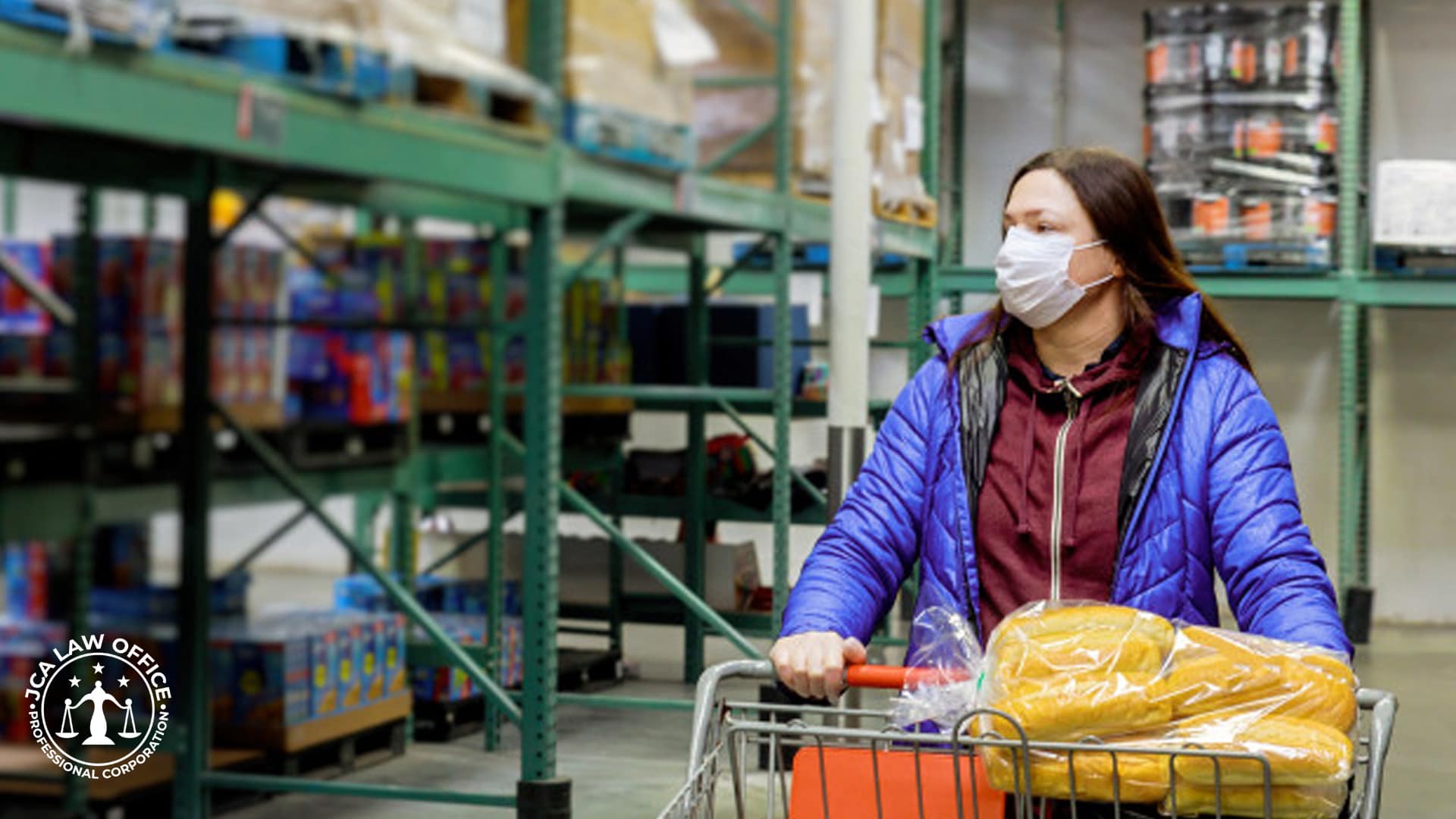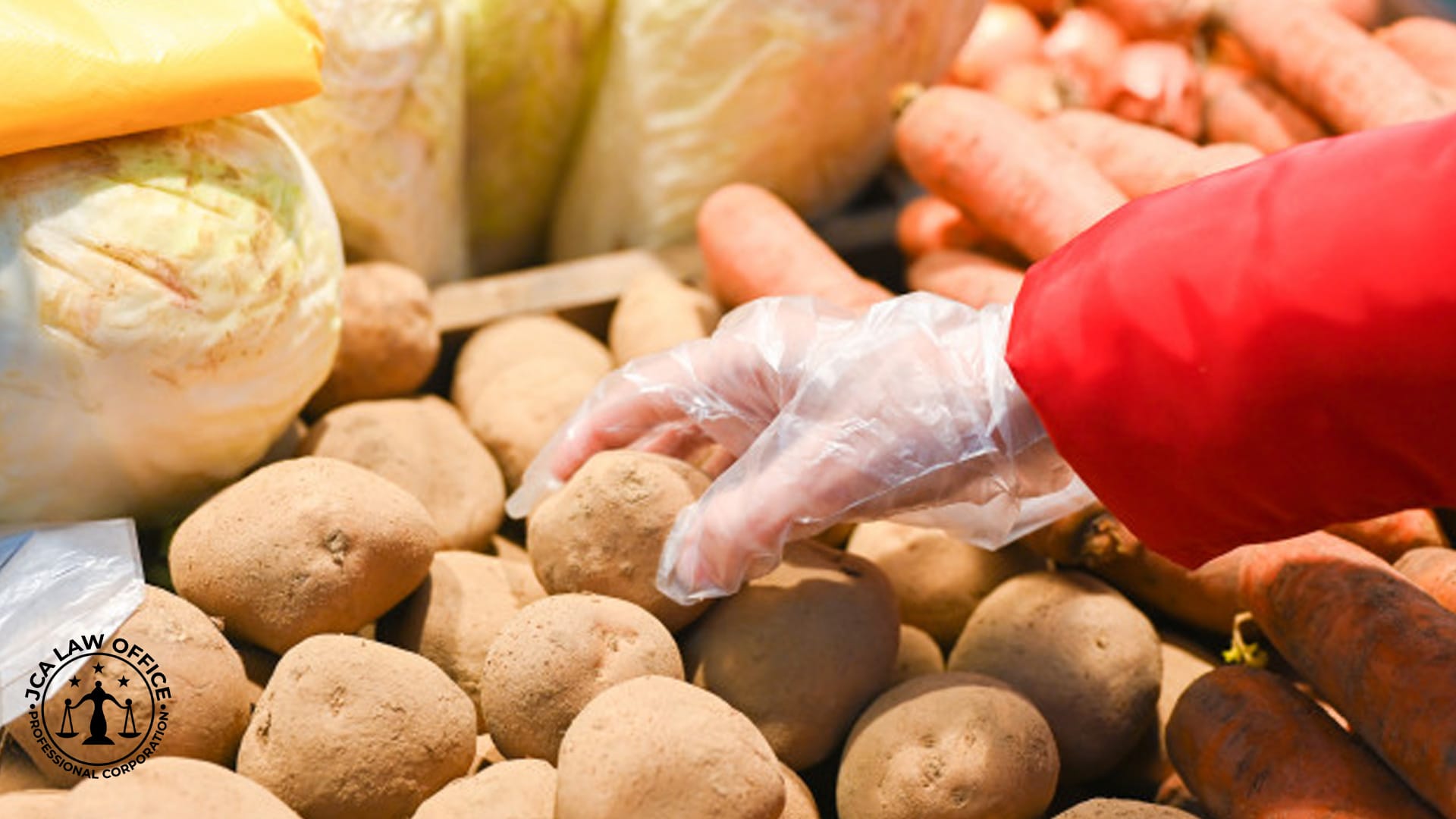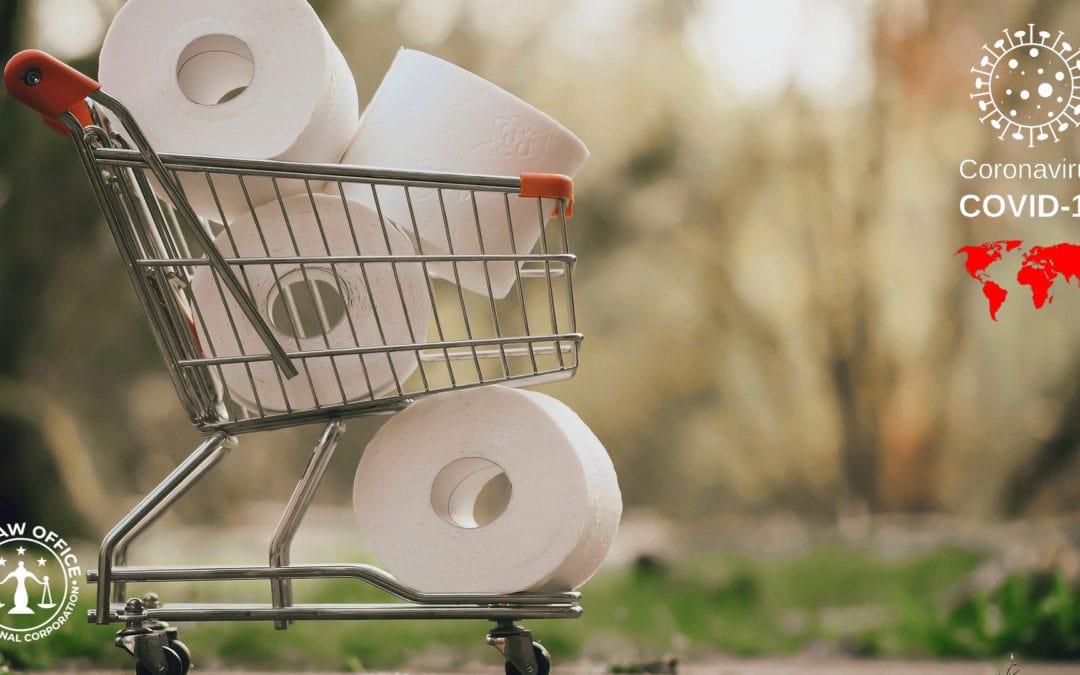
HOW TO DEAL WITH GROCERY SHOPPING WHEN THERE’S A VIRUS PANDEMIC?
BY: Gin Aguilar
Shopping for your groceries here in Canada in the midst of the COVID-19 pandemic seems like a very challenging task these days — it involves a lot of decision-making and strict measures that you never thought you will be doing just a month ago – everything from disinfecting the shopping carts and baskets, to how best to practice social distancing while shopping, and how to store & disinfect everything all the items you have bought – these odd mundane procedures need to be done in order to make sure that you and your family will survive until the quarantine is over.
Across the country of Canada, all public health officials are in agreement and have been consistent in their stern advice that everyone should stay home as much as possible and therefore try to shop for groceries only once a week or less, and preferably alone ( so if you are currently quarantined with your family, you have to decide who will be the lucky one to face the virus and do the groceries – do not bring the kids unless absolutely necessary).
Here’s the list of most common questions and the best answers that we have gathered with regards to your grocery shopping woes during COVID-19 outbreak:
Q: Is it enough to disinfect just the shopping cart handle? Why not the whole shopping cart?
A: Dr. Zain Chagla, an infectious diseases specialist at St. Joseph’s Healthcare hospital, says that people need not to worry about disinfecting the entire shopping cart or basket. It’s the shopping cart handle or shopping cart basket that people touch the most with their hands, and therefore more likely to be contaminated by virus. You also need to keep in mind that you need to do your grocery shopping in the least amount of time possible to avoid getting the virus, which means that you don’t want to be hanging around the front of the store trying to clean the entire cart or basket and wasting precious minutes of your time.
Q: Do you have to disinfect everything you buy from the store?
A: Given some of the recent videos and stories that have been circulating social media lately, the answer from Dr. Chagla might come as a surprise — and actually a bit of a relief for most people – his advice is not to worry about washing or disinfecting ALL of your groceries, you only need to ensure the fresh produce has been cleaned and meat is properly cooked using the right temperature.
He explained that even in the most investigational studies, the coronavirus lasts on most surfaces for up to a period of 2 to 3 days. And those are surfaces that are optimal for the virus, with optimal humidity and optimal temperatures (such as your body’s temperature of 37 degrees Celsius). Dr. Chagla says that the virus is unlikely to last on groceries after they’ve been in your fridge for a day or two and it’s not even clear if the virus that the scientists detected on those surfaces was still infectious. One thing that needs to done right away though is to wash or disinfect your hands once you get home from shopping before putting your groceries away.
And when you need your groceries, when you are preparing your food, he advises to wash your hands before handling it, just as you would normally do before you eat. Wash and wipe clean the canned goods before opening it. “Then whatever you’ve touched has been disinfected.”
Toronto’s associate medical officer of health, Dr. Vinita Dubey, also agrees that it’s quite “unlikely that COVID-19 will spread in a home through contamination on packaging.”
She also adds that fresh produce should of course be thoroughly cleaned before it’s eaten, and raw meats cooked at the appropriate temperature to make there are no viruses in your food.
Q: Is there a better time of day to shop?
A: Most of the grocery stores and shops have dedicated the 1st hour of their opening hours to seniors or others whose immune system might be compromised and at higher risk of getting sick with COVID-19.
Dr. Chagla also recommends to people who are fortunate enough to be working from home or people who have more flexibility to shop at off-peak hours or days (such as during weekdays), if possible, and let people such as first responders, health-care workers or others who have fewer options to shop at busier times. He advises to “let them go on the weekend without that much density if you have an off-peak time to go”. It is also more beneficial for you because you will be shopping at a time where there are fewer people which makes physical distancing a lot easier.
Q: Is it better to grocery shop in person or do your groceries online?
A: If you are lucky enough to live in an area that offers online shopping and delivery, you might be thinking whether it is better to have a possibly infected stranger choose your grocery items and bag it up, and then have another potentially infected stranger deliver it to you — or whether you are better off to do your shopping in person, increasing the danger of exposing yourself to an infected person, and handling a potentially contaminated shopping cart… which one is preferable?

Dr. Chagla points out that even if you shop in person and pick your own food, that food has been handled by countless people before you anyway. “It’s not like you’re picking stuff off the truck.” One way or another, he said, “people have been touching your food before you got the chance to touch it.”
“Given that the coronavirus is spread through close contact with a person, avoiding contact with individuals through grocery shopping is preferred,” Dr. Vinita Dubey further explained in an email.
Therefore, it is safe to say that online shopping carries less risk of COVID-19 infection. It is better to avoid being in a closed environment with a lot of people where you cannot practice social distancing, especially for the elderly and for those whose immune system is compromised.
REFERENCE:
https://www.cbc.ca/news/health/coronavirus-grocery-shopping-online-1.5516983
For all your legal and immigration concerns, you may still direct your queries to JCA LAW OFFICE by sending us a message via our Facebook Page. You may also send us an email at [email protected]. Or drop us a note by providing your name and email address at https://filipinolawyer.ca/contact/ . Keep safe and let’s all do our part in keeping our community virus-free.

